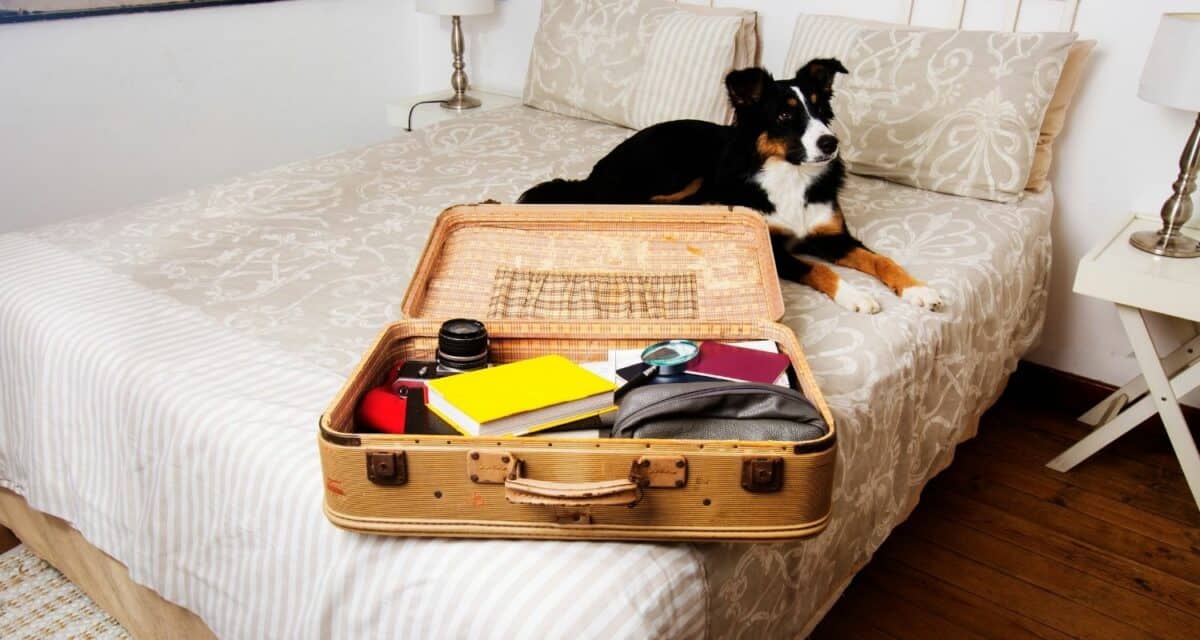The number of people taking flights this summer is expected to surpass last year’s record-breaking numbers, according to Airlines for America (ALPA), the trade association for U.S. airlines. More than 1 million passengers will fly daily over the next two months and nearly 2 billion passengers are expected through August 22 — an increase of 3.5 percent over last year’s numbers.
But while most of us are excited to see family and friends, there’s something else on the minds of many people with hearing loss — traveling with hearing aids.
Hearing aids can be a big help when you’re trying to communicate in a crowded airport or if you’re at a noisy restaurant. But they also have limitations when it comes to noise and background sounds.
So what do you need to know about traveling with your hearing aid? As travel plans pick up again, there are several things that hard of hearing travelers need to consider. Here’s a brief rundown of some tips and recommendations.
Traveling with hearing aids.
Traveling with hearing aids can be a little tricky, but it can be done. Here are some tips to help you stay organized and comfortable during your travels.
Have extra batteries: In case you need to replace the batteries in your aids while traveling, bring along some extras—at least enough for one day so that you don’t have to worry about finding a drug store. If you use rechargeable hearing aid, don’t forget the adapter if you’re going overseas! If you do run out, hearing aid batteries are available at most airports and pharmacies around the world.
Keep an eye on the humidity levels when visiting somewhere tropical or coastal: When it comes to protecting your hearing aids, humidity is the enemy. Hearing aids are made of small, delicate parts that can easily get damaged when exposed to humidity for extended periods of time. The most common type of damage caused by excessive humidity is condensation. Condensation occurs when water vapor in the air comes into contact with a cold surface, such as your hearing aid receiver or earmold. When this happens, water droplets form on the surface and drip down into the device. This can cause corrosion on electrical components inside your hearing aid, which can lead to permanent damage or even complete failure of the device.
Keeping hearing aids safe.
If you’re traveling with hearing aids, it’s important to keep them safe. Here are a few tips to keep your precious devices safe:
- Store them in a safe place.
- Protect them from extreme temperatures by storing them in an insulated case or bag.
- Protect your hearing aids from water—don’t get caught in rain storms without an umbrella!
You don’t need to take your hearing aids off at the security line
Thankfully, you won’t have to remove your hearing aids before passing through security. If you do decide to wear your hearing aid through screening, you should inform TSA staff. You may be flagged for additional screening depending on the device. If you’re not wearing them, don’t put them on the conveyor belt or in the plastic containers because this could cause static electricity, which could damage them.
Do not put your hearing aids on the conveyer belt or in the plastic bins at airport security; doing so could cause them to be damaged by an electrical charge.
Take advantage of hearing loops in airports
Induction loop devices, which consist of a wire loop that emits an electromagnetic signal that is directly received by hearing aids, are becoming more common in airports. Hearing aid and cochlear implant users can hear more clearly with telecoils and induction loop systems, even when there is background noise or poor acoustics. Simply switch your hearing aids to the “telecoil” or “T” setting to connect to the airport’s induction loop. Inquire with your hearing healthcare practitioner if your hearing aids feature telecoils.
If you have hearing loss, it may feel like travel is out of the question. But it doesn’t have to be. With some planning and preparation, you can still enjoy a vacation without too much hassle.


